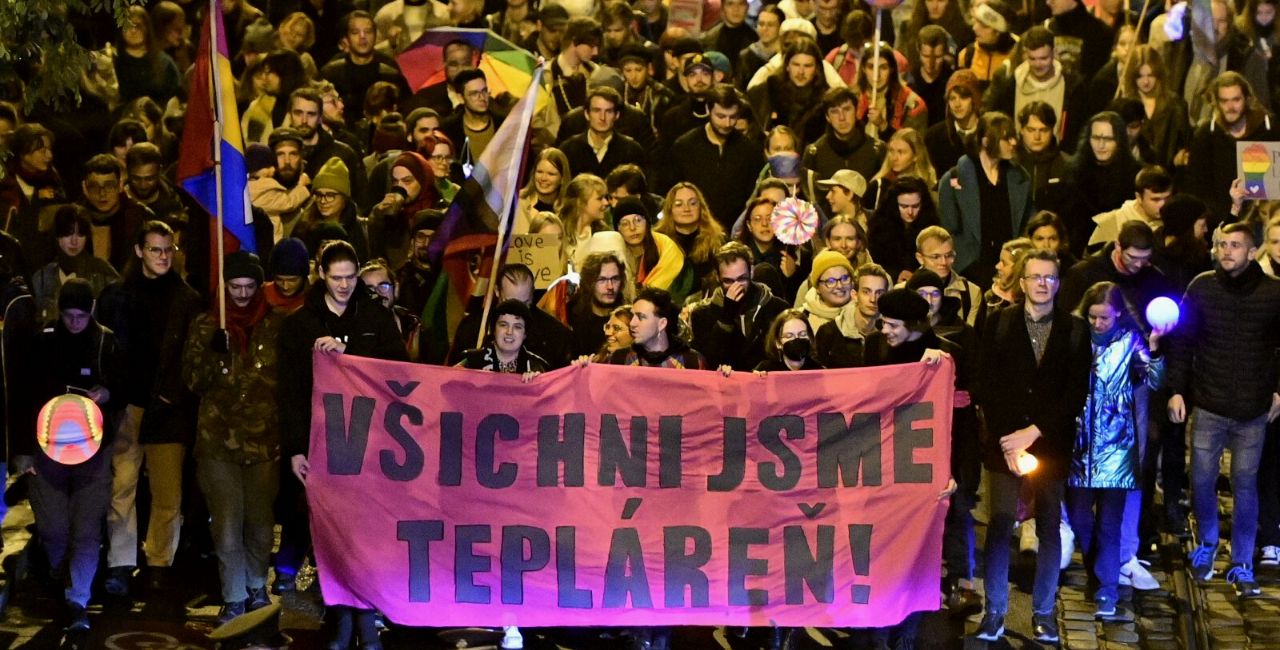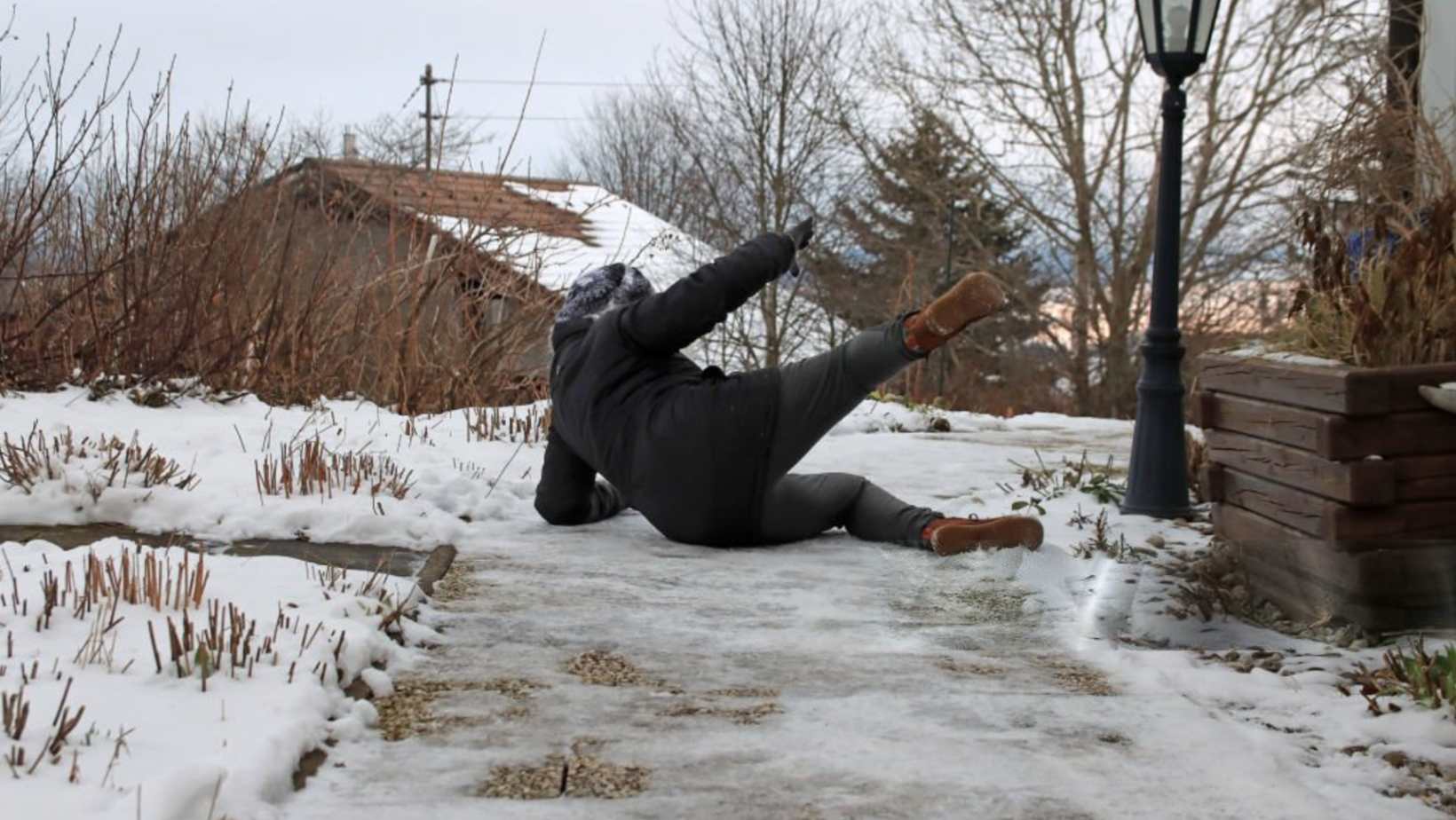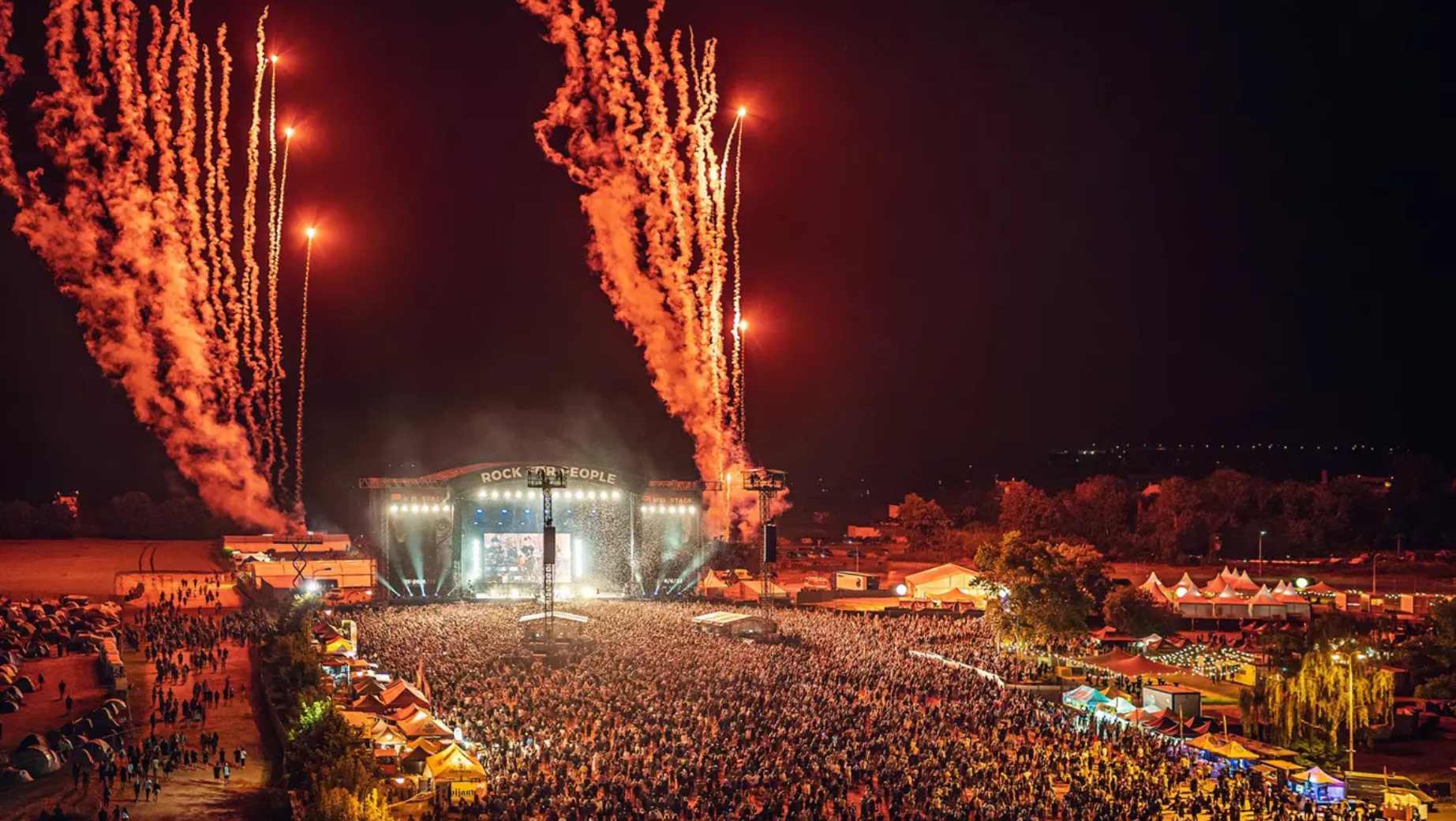LGBT+ organisations are set to hold a rally named “Together Against Violence” on Prague’s Wenceslas Square on Wednesday, October 26.
The LGBT+ groups say they expect up to 10,000 people to attend the event, where speakers will include Roman Samotný, the owner of the Bratislava gay bar Tepláreň, outside which two young homosexual men were recently shot dead.
Musicians such as David Koller, Emma Smetana and Jordan Haj will perform on the stage.
What happened
The shooting took place at the entrance of the gay bar Tepláreň in downtown Bratislava.
In addition to the two persons shot dead, a third person was wounded in the attack. The suspect was identified as 19-year-old Juraj Krajčík, the son of a far-right politician. Before the shooting, Krajčík had posted anti-LGBTQ+ and anti-Semitic messages on Twitter.
Following the tragedy, thousands took to the streets of Slovakia to protest against homophobia in the nation. President Zuzana Caputova shared her views at the march, stating: “Hate crimes are an attack on the whole society, of which the LGBTQI+ community is a valuable member.”
From legal discrimination to institutionalized hate speech
While the Czech Republic, Hungary, Poland and Slovakia, known collectively as the Visegrád Group, are all members of the European Union and have legislation banning gender-based discrimination, legal inequality persists in all four countries.
In the Czech Republic, where same-sex civic unions are allowed and which hosts one of the region’s largest Gay Pride parades, President Miloš Zeman has stated clearly that he would veto a proposal to legalize gay marriage if it were approved by Parliament.
In Slovakia, same-sex civic unions and gay marriage are not legally permitted. In Hungary, same-sex partnerships have been legal since 2009, but gay marriage was constitutionally banned in 2012. In Poland several bills seeking legal recognition of same-sex partnerships have failed to pass into law.
In both Poland and Slovakia, the Catholic Church is one of the main sources of stigmatization of LGBTQ+ people.
When Zuzana Čaputová was running as a presidential candidate in 2019 and made her support for the LGBTQ+ community clear, members of the Slovak Catholic Church declared that voting for her would be “sinful”.
In 2020, the archbishop of Kraków, Poland’s second-largest city, publicly described gay rights as the new “plague” and called on Polish citizens to fight against them.
In Hungary, the LGBTQ+ community has become a major target of various campaigns by Prime Minister Viktor Orbán’s ruling Fidesz Party that have resulted in the banning of gender studies from university curricula and removal of the right to change identity papers based on reassigned gender, as well as the dismantling of the Equal Treatment Authority charged with protecting citizens against racial, gender discrimination.
-
NEWSLETTER
Subscribe for our daily news










